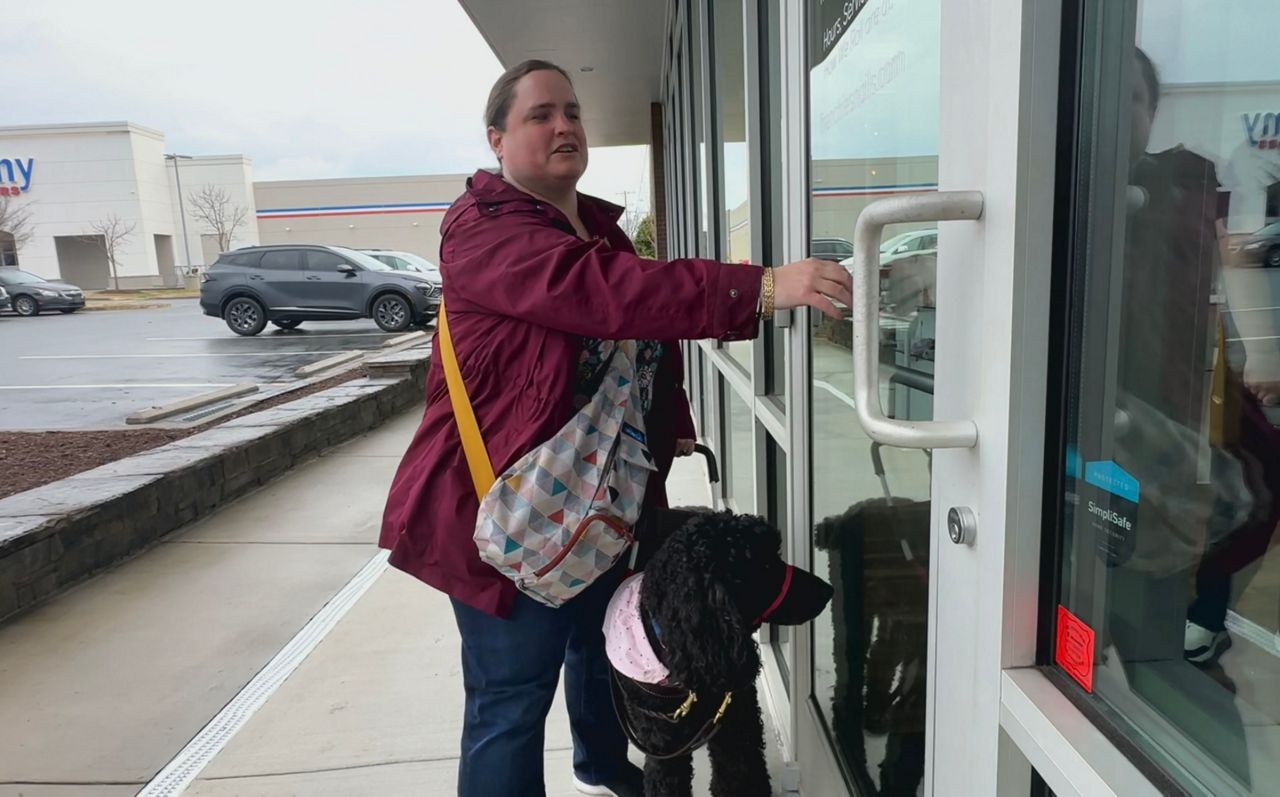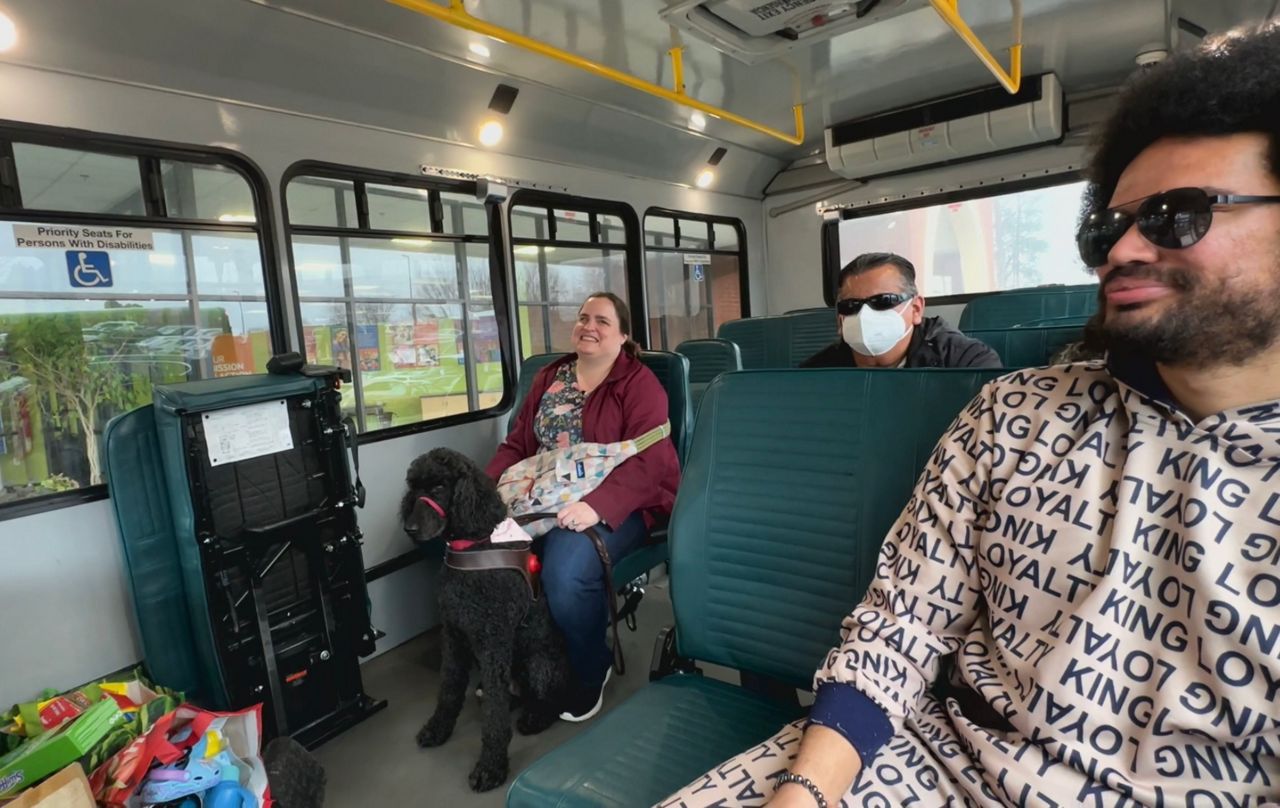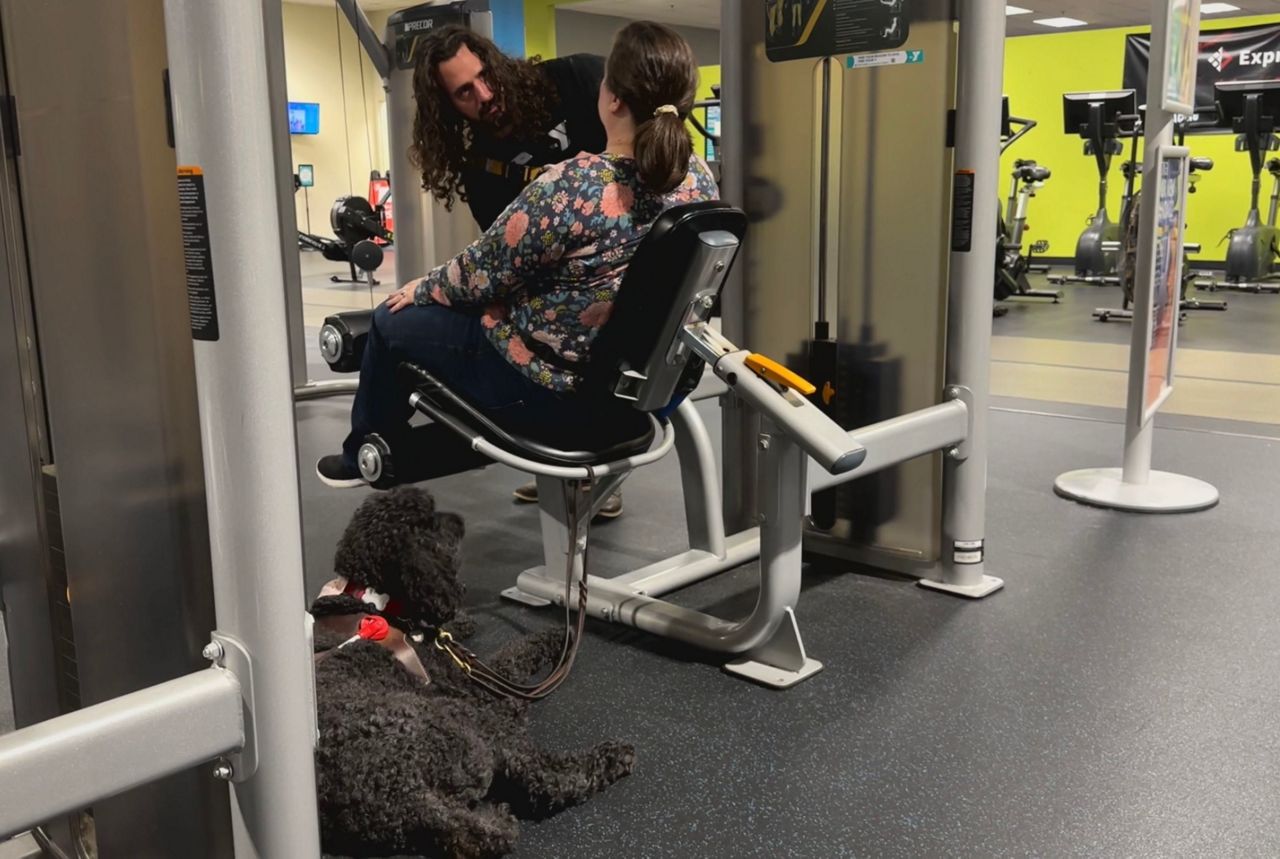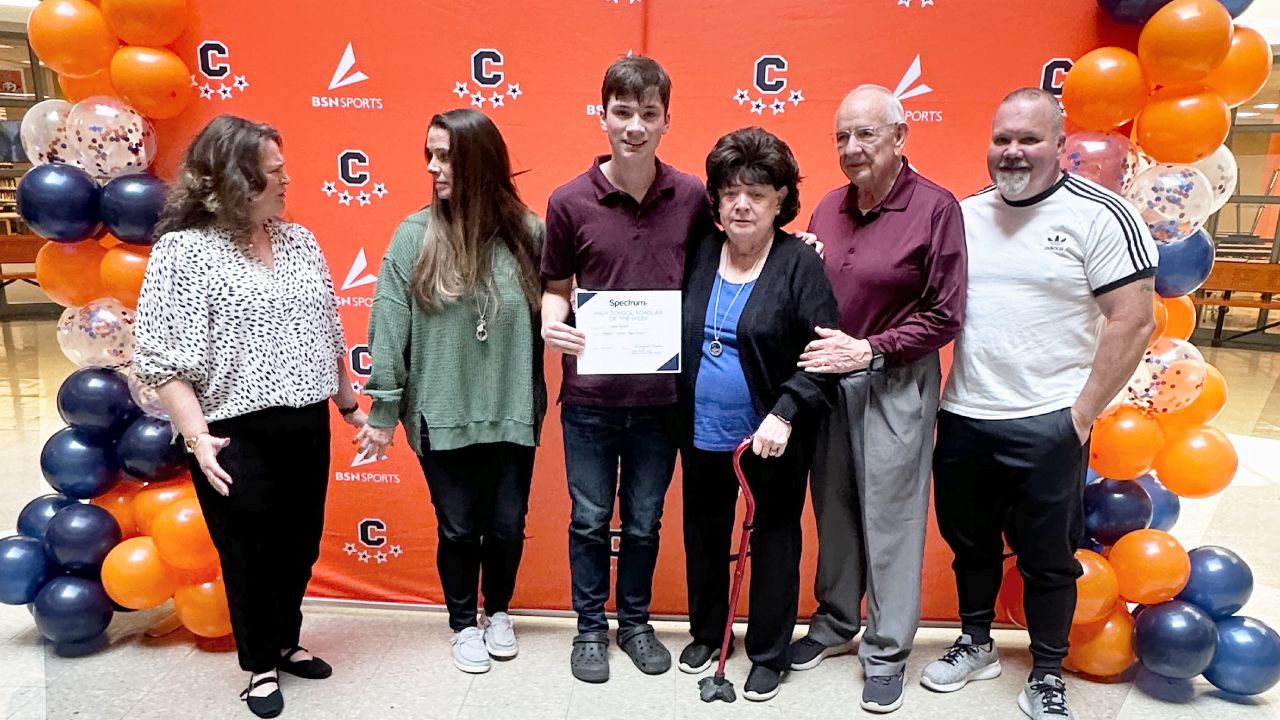WINSTON-SALEM, N.C. — There are less than six crosswalks with audible pedestrian accommodations in Winston-Salem, even though it's a city where IFB Solutions, which claims to be the largest employer of the blind in the U.S., is located.
What You Need To Know
- February is Low Vision Awareness Month
- Guide dogs cost around $50,000 to train and can work for around 10 years
- If you see a guide dog, do not pet or distract the dog
- Not all crosswalks contain audible pedestrian accommodations, leading members of the low vision community to listen if cars are coming
Tasks like crossing the street and getting safely from one point to another is often taken for granted. Guide dogs help members of the low vision community perform and complete daily tasks.
Jennifer Finley’s retinas were detached at the time of birth, causing her to be born blind.
“I've always been a cane user since I was like 3 or 4, but then I had decided that I wanted a guide dog,” Finley said.
In order to qualify for a guide dog, members of the low vision community must be proficient in using a cane and other skills. Finley got her first guide dog in her 20s, and is now working with her third guide dog, Jill, who is a hypoallergenic poodle since she is allergic to dogs.
“The thing about it is like, if you [are] with a guide dog, you lose all physical contact with a cane. You have constant contact with your whole world,” said Finley.

Jill is now an extension of Finley’s body, helping her find items like door handles, chairs, bathrooms and more.
“It would be more difficult because if you're using a cane, you would have to ask people where the chairs are, where the counter is, where the door is,” Finley said.
These dogs are often bred to grow up to be guide animals and begin training very young. When a puppy is near 12 weeks old, they are taken to volunteers' homes, called puppy raisers. The dogs stay with these volunteers, who help raise the dogs and teach them basic obedience and get them comfortable with being touched.
“Essentially, how to work with people and how to enjoy being with people and how to have appropriate manners when they're out and about. They work with us regularly throughout their time together. People usually have a puppy for about a year, and then the puppies come in for training where they work, they learn the harness work side of things," said Kerry Lemerise, the puppy program manager-east for Guiding Eyes for the Blind, a nonprofit guide dog training school based out of Yorktown Heights, New York.
Although each guide school is slightly different, the dogs will go through rigorous training for around two years to make sure they and their handlers are safe, and continue to keep training skills persistent throughout their working careers.
“When you're out and about being confident and comfortable being out in public, the guide dog tasks are primarily around bringing a person around obstacles and helping them to identify things like where is the curb and how to say, 'how am I in traffic? How can I make sure that I avoid, you know, trip hazards, things like that,'” said Lemerise.
When the dogs complete their training, which costs around $50,000 and is often paid for by donations or donor funding, the dogs are matched with a potential handler.
“Then, once we have our matches, we would contact the applicant and say, 'We have a dog for you,' and we would invite the applicant to come to our facility for what we call a class course - is about a three-week time frame where the student comes and learns how to use their new guide dog,” said Jamie Massey, the director of Pilot Dogs.
Pilot Dogs is a nonprofit guide dog training school based out of Columbus, Ohio, where Finley was matched with Jill.
The schools say around 50% of the dogs fail out, which could be due to being scared of traffic, not walking down stairs, not being confident and more. This leads some of the dogs to switch careers to work as sniffer dogs, therapy animals or even going into other fields including a general pet. Dogs who do pass can work for around 10 years.

The dogs must be confident in their ability, and the handler must be confident in the dog. IFB Solutions says they are the the largest employer of the blind in the U.S. They're located in Winston-Salem, where there are only five crosswalks that have audible pedestrian accommodations.
These crosswalks are located at Trade Street and Northwest Boulevard, Patterson Avenue and Northwest Boulevard, Hawthorne Road and Magnolia Street, Northpoint/Silas Creek and Bethabara Road, MLK Jr. Drive / File Street / Cleveland Ave, according to the City of Winston-Salem’s director of transportation.
This leads Finley to rely on auditory skills and Jill to know whether she can cross the street.
“You put a lot of faith in Jill and you put a lot of faith in you and your mobility skills. So you have to have really good own orientation and mobility skills,” said Finley.
Finley and Jill often use Trans-AID, a special public transit for people living with disabilities or elderly people, as they are sometimes denied a ride from ride shares due to Jill being a dog.
“A lot of the Ubers and Lyfts, they will use the excuse of that they're allergic to dogs and that they or that they just don't like dogs in general, and that can be you know stressful because you have to you, you have to basically, you know, you'll have your ride set and then you have to cancel it,” said Finely.

Jill and Finley go almost everywhere together, including the gym at the Robinhood Road Family YMCA, working with a trainer to teach Jill to find machines and work out safely.
“At the Y, we believe in helping all people reach their God given potential and spirit, mind and body. We believe in loving and serving all. When people walk through those doors, no matter what we are looking to meet them where they need to be met,” said Michael Rogers, regional wellness director for the YMCA.
The YMCA is ADA compliant and Rogers says staff members are always looking to meet people’s needs. Rogers suggests those who need help or to build more confidence to contact their gym ahead of time.
If you do see a guide dog, do not pet or call the dog, as it could distract the dog and cause harm to them or their handler.
“So it's really dangerous. And even if the person is at a stop, you know, there's just standing there and it looks like the dog is not actively working. They are actually working. You know, their job is to sit there nicely and not get distracted by people because when they are up and guiding, you don't want the dog going up and approaching people,” said Massey.
If you are interested in being a puppy handler, visit the Pilot Dogs or Guiding Eyes for the Blind website. Guiding Eyes for the Blind, also has a group based in North Carolina.
There are three proposed audible pedestrian cross walk accommodations in Winston-Salem, located at Polo Road and Long Road, Robinhood Road and Huntingreen Road and Robinhood Road and Polo Road.










